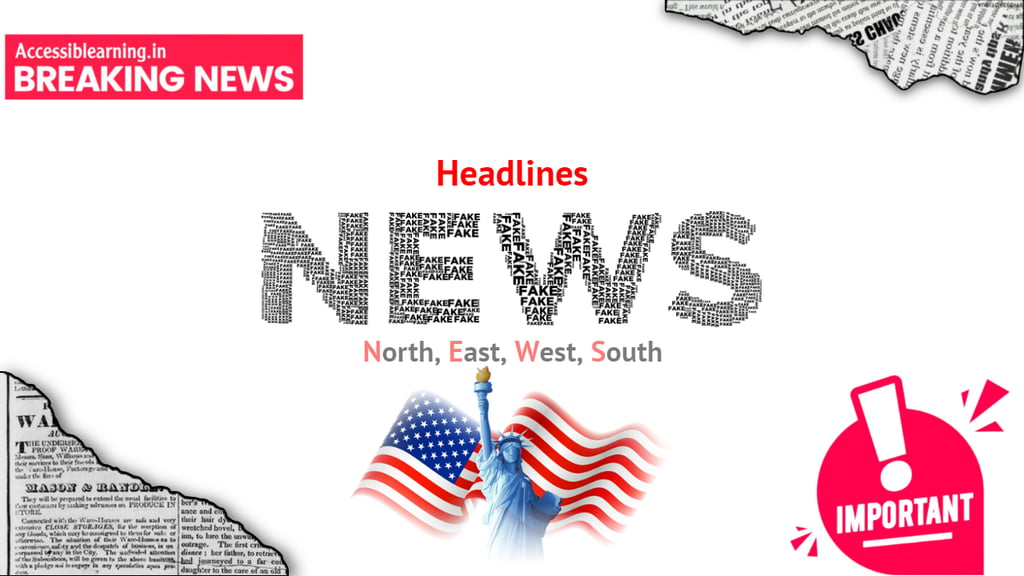
America This Week: From Shutdown Showdowns to Rising Cyber Threats
Discover the key events that shaped America last week—from the federal government shutdown and border security crisis to AI regulation progress, economic changes, and national protests. A full, humanized look at how the U.S. is navigating politics, economy, and society in October 2025.
NEWS/CURRENT AFFAIRSUSAGLOBAL ISSUESNEPOTISM/SOCIAL ISSUES
---
10/6/20255 min read


Last week in the United States unfolded with intensity across every corner of the nation. From Washington’s political standoff that led to a partial government shutdown to major foreign policy actions and domestic economic shifts, the country experienced a wave of defining events. The week also brought attention to vital issues—cybersecurity threats, AI regulation, education protests, and climate-related emergencies. Together, these developments painted a clear picture of an America in motion, balancing power, progress, and resilience amid uncertainty.
U.S. Government Faces Partial Shutdown
The United States government entered a partial shutdown after Congress failed to pass the annual spending bills. The disagreement between lawmakers over healthcare funding, Medicaid cuts, and domestic spending priorities led to the furlough of hundreds of thousands of federal workers. Many public services and agencies paused operations, adding uncertainty to an already strained economy. The situation has also reignited debates about partisanship and government efficiency as both major parties trade blame.
U.S. Conducts Military Strikes on Venezuelan Drug Vessels
The U.S. military launched targeted strikes on vessels off the Venezuelan coast suspected of engaging in narcotics trafficking. Officials described the operation as part of a larger effort to curb illegal drug routes entering American borders. The move has drawn international attention due to its timing and potential diplomatic implications, as it further strains U.S.–Venezuela relations amid ongoing political tensions in Latin America.
Trump Administration Pushes Ceasefire Efforts in Gaza
President Donald Trump intensified diplomatic efforts to mediate a ceasefire in Gaza. His envoys, Jared Kushner and Steve Witkoff, visited Egypt to negotiate conditions aimed at ending hostilities between Israel and Hamas. Reports indicate partial acceptance of the peace proposal, though disagreements remain over key terms such as disarmament and governance. The administration’s approach suggests a renewed attempt to position the U.S. as a central peace broker in the Middle East.
National Guard Deployed in Chicago Amid Civil Unrest
The White House approved the deployment of 300 National Guard troops to Chicago following rising civil unrest. The move followed weeks of growing tensions in the city over law enforcement practices and public safety concerns. At the same time, a federal court blocked the planned deployment of federalized forces to Portland, citing legal overreach. The contrasting decisions have reignited debates about the role of federal intervention in state affairs.
Proposal for a Trump Commemorative Coin Sparks Controversy
A proposal to issue a $1 commemorative coin featuring President Trump’s image and the slogan “Fight, Fight, Fight” created widespread debate across the country. The coin is being considered as part of America’s upcoming 250th anniversary celebrations. While some view it as a patriotic tribute, others criticize it as politically motivated, noting that living figures are rarely portrayed on U.S. currency. The discussion has added another layer to the nation’s cultural and political divides.
Veterans Criticize Defense Secretary’s Political Speech
Defense Secretary Pete Hegseth’s remarks at a recent military meeting drew criticism from veterans and former generals who claimed his speech blurred the line between political rhetoric and professional duty. Several veterans expressed disappointment, stating that such comments risk undermining the neutrality and integrity of the U.S. armed forces. The controversy has fueled broader discussions about political influence within military institutions.
U.S. Dollar Weakens, Corporate Divide Widens
The American dollar continued to decline, marking a nearly 10% drop this year. The weaker currency benefited multinational exporters by boosting overseas profits but hurt smaller domestic companies that rely heavily on imports. Economists warn that the divergence could increase financial inequality among U.S. industries and create new challenges for policymakers trying to stabilize inflation and trade imbalances.
Rising Legal and Political Tensions Over Federal Powers
Across multiple states, courts and governors pushed back against federal directives related to public safety, healthcare, and education. Several new lawsuits emerged challenging executive decisions that some legal experts describe as exceeding constitutional boundaries. These cases highlight the growing struggle between state independence and federal authority—a defining feature of America’s current political climate.


U.S. Border Security Tightens as Migrant Crossings Surge
Last week, U.S. border authorities reported a sharp increase in migrant crossings along the southern border. Officials attributed the surge to ongoing instability in Central America and rumors of relaxed entry policies. The federal government responded by increasing patrols, deploying drones for surveillance, and reinforcing key checkpoints. The renewed focus on border security has reignited debates over immigration policy, asylum procedures, and humanitarian responsibilities.
California Declares Statewide Drought Emergency
California declared a statewide drought emergency as reservoirs hit critically low levels and wildfires spread in several regions. The declaration includes new water restrictions for households, farmers, and industries. Experts warn that the prolonged drought could impact agriculture, electricity generation, and water supplies for millions. The crisis has also renewed discussions about climate change adaptation and long-term water management in the western United States.
Senate Advances Major AI Regulation Bill
In a landmark move, the U.S. Senate advanced a comprehensive bill to regulate artificial intelligence development and deployment. The legislation aims to ensure ethical use of AI in law enforcement, education, and healthcare. It also proposes transparency standards for companies using AI in public-facing services. The bill has received bipartisan support, marking one of the few areas where both political parties have found common ground in recent months.
U.S. Unemployment Rate Rises Slightly Amid Economic Slowdown
The national unemployment rate ticked up to 4.2% last week, signaling a modest slowdown in the job market. Economists attribute the rise to reduced consumer spending and lingering effects from high interest rates. Sectors such as retail, manufacturing, and tech reported minor layoffs, while healthcare and renewable energy continued to expand. The data has sparked renewed conversations about the Federal Reserve’s interest rate strategy and its impact on household stability.
Massive Cyberattack Targets U.S. Financial Institutions
Several major U.S. banks and payment systems experienced temporary outages following a sophisticated cyberattack believed to originate from overseas. The attack disrupted online banking services and delayed financial transactions nationwide for several hours. Cybersecurity agencies have since strengthened network defenses and launched investigations to trace the breach. The incident underscored growing vulnerabilities in America’s digital infrastructure and the urgent need for stronger cybersecurity measures.
Teachers Across Multiple States Demand Better Pay and Resources
Teachers’ unions in several states, including Texas, Florida, and Pennsylvania, organized coordinated demonstrations last week calling for improved salaries and classroom funding. The protests followed reports of record teacher shortages and declining education budgets. Educators argue that the rising cost of living and outdated facilities are pushing professionals out of the field. The movement has drawn national attention, pressuring local governments to reconsider education funding priorities.
The past week reaffirmed that America remains at the heart of global and domestic challenges—from political divisions and economic pressures to technological transitions and social change. As the nation faces a complex mix of crises and opportunities, one thing remains constant: the determination of its people and institutions to adapt, debate, and push forward. The coming weeks will reveal whether unity and innovation can outpace division and disruption in shaping the country’s next chapter.
Subscribe To Our Newsletter
All © Copyright reserved by Accessible-Learning Hub
| Terms & Conditions
Knowledge is power. Learn with Us. 📚


